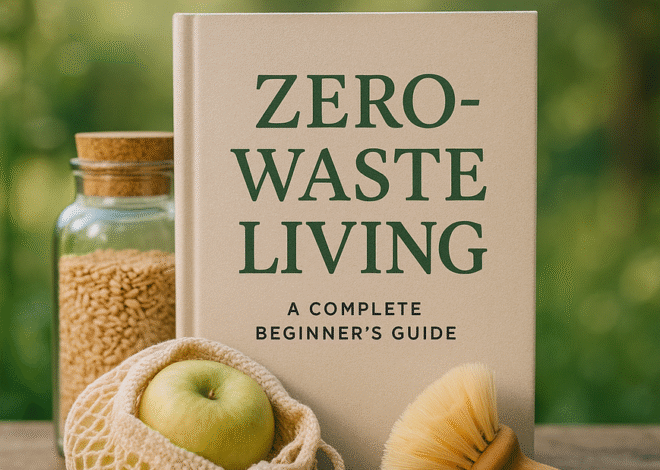
Urban Gardening For Mental Health: Growing Your Way To Wellness
“`html
Introduction to Urban Gardening and Mental Health
Urban gardening serves as a potent tool for enhancing mental health, particularly in crowded urban settings. Engaging in gardening activities allows individuals to connect with nature, fostering a sense of calm and reducing stress. Studies reveal that spending time in green spaces can significantly improve mood and emotional well-being, with research indicating that contact with plants lowers cortisol levels, a hormone associated with stress. Furthermore, the act of nurturing plants promotes mindfulness, providing a therapeutic outlet that encourages a shift from negative thought patterns to positive engagement with one’s surroundings [Source: NIH].
Moreover, urban gardening facilitates physical activity, which is intrinsically linked to mental wellness. Activities such as planting, weeding, and harvesting can elevate endorphin levels, further enhancing happiness and reducing symptoms of anxiety and depression. Community gardens, in particular, cultivate a sense of belonging and camaraderie among neighbors, acting as social hubs and improving community ties, which is essential for mental health. For more on the importance of green spaces in urban areas, check out this article on the role of community engagement.
The Science Behind Gardening and Mental Well-being
Research indicates that engaging with gardening has profound effects on mental well-being. Studies document that interaction with plants can significantly reduce stress and alleviate anxiety, enhancing overall mood and cognitive function. According to a study published in the *Journal of Health Psychology*, participants involved in gardening reported lower levels of cortisol [Source: Liebert Pub]. Gardening encourages mindfulness and fosters a sense of connection to nature, which is linked to improved mental health outcomes.
Moreover, the act of nurturing plants creates a therapeutic environment that promotes positive emotions. A meta-analysis in *Ecopsychology* found that green spaces and gardening activities correlate with increased happiness and lower levels of anxiety and depression.[Source: APA] This reinforces the notion that spending time in nature not only enhances psychological resilience but also contributes to emotional healing.
Additionally, gardening can provide a sense of accomplishment and purpose, which is vital for individuals dealing with mental health challenges. The *American Psychological Association* highlights that engaging in activities like gardening can create enjoyable distractions from everyday stressors, allowing individuals to find solace and tranquility in nature. For further insights into similar mental health topics, check out our article on strategies for thriving during turbulent times.
Practical Tips for Starting Your Urban Garden
Starting an urban garden can be a fulfilling way to nurture your mental health. Here are some practical tips to get you started:
- Choose the Right Location: Select a spot with at least 6-8 hours of sunlight. Roofs, balconies, and community gardens can be ideal, but ensure your chosen space is accessible for maintenance.
- Select Appropriate Plants: Opt for plants that thrive in your climate and space. Start with easy-to-grow options like herbs (basil, mint), leafy greens (spinach, lettuce), or compact vegetables (radishes, cherry tomatoes).
- Use Quality Soil: Invest in high-quality potting soil that drains well but retains moisture.
- Essential Gardening Tools: Equip yourself with basic tools such as a trowel, pruning shears, a watering can, and gardening gloves.
- Watering Techniques: Water early in the morning or late in the afternoon to minimize evaporation.
- Nutrition and Fertilizers: Use organic fertilizers to enrich your soil. Composting can also provide essential nutrients.
- Pest Management: Monitor your plants for pests and use natural remedies like insecticidal soap or neem oil.
- Stay Organized: Keep a gardening journal to track what you plant, their growth, and any challenges faced.
These practical tips will equip you to kickstart your urban gardening journey with confidence and creativity. For further reading, check out our article on Essential Steps to Take After Winning the Lottery which discusses strategies that can also apply to planning your urban garden budget.
Therapeutic Gardening Activities to Boost Mental Health
Engaging in therapeutic gardening activities can significantly enhance mental health by incorporating mindfulness and sensory engagement strategies. Here are several creative methods to effectively use gardening as a tool for stress relief:
- Mindfulness Gardening: Focus on being present while gardening. Activities like planting seeds or observing flora promote a sense of calm and reduce anxiety [Source: Association for Psychological Science].
- Sensory Gardens: Create a sensory garden that incorporates plants engaging all five senses, encouraging relaxation and comfort [Source: National Library of Medicine].
- Interactive Gardening Techniques: Incorporate journaling or photographing progress in your gardening journey for creative expression and emotional processing [Source: Friends of the Earth].
- Nature Walks and Exploration: Explore local parks or botanical gardens to enhance skills and connect with nature, which can boost mood [Source: National Institutes of Health].
- Group Gardening Activities: Participate in community gardening projects to foster social connections and emotional resilience [Source: National Institutes of Health].
By adopting these therapeutic gardening activities, individuals can cultivate not only their gardens but also their mental health and well-being.
Success Stories: How Urban Gardening Transformed Lives
Urban gardening has proven to be a transformative practice for many individuals, greatly enhancing their mental health. A community garden initiative in New York City provided a supportive environment for locals, leading to improved mood and decreased anxiety among participants. One participant, Maria, shared how tending her urban plot allowed her to focus on the present and foster connections with her neighbors.
In Los Angeles, veterans turned to urban gardening as a form of therapy. The calming effects of gardening activities helped them manage PTSD, creating a healing path through nature’s connection. Similarly, a school in Detroit revealed that students involved in a garden program experienced a boost in confidence and reduced behavioral issues, emphasizing gardening’s role as a therapeutic outlet for young minds.
These stories reflect the powerful potential of urban gardening to beautify urban spaces and foster resilience and community. Individuals interested in embarking on their gardening journey can find motivation in these success stories and consider how similar practices could benefit their lives.
Sources
- American Psychological Association – Gardening for Well-Being
- Friends of the Earth – Gardening for Mental Health
- National Institutes of Health – Community Gardening and Mental Health
- NIH – Gardening and Stress Reduction
- National Institutes of Health – Nature Therapy and Stress
- National Library of Medicine – Sensory Gardens
- Liebert Pub – Ecopsychology and Mental Health
- Association for Psychological Science – Mindfulness as a Stress Reducer
- Superior Solution – Strategies for Thriving During Turbulent Times
- Superior Solution – Role of Community Engagement
- Superior Solution – Essential Steps to Take After Winning the Lottery
“`







